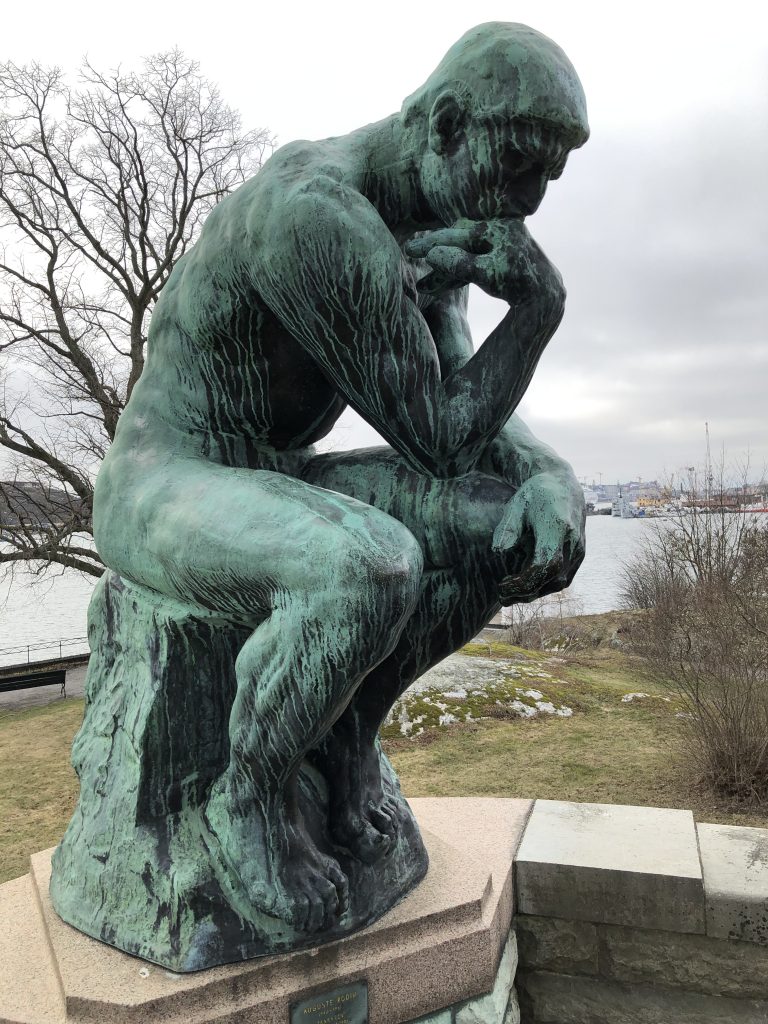The 346 persons who died in crashes of the fairly new airplanes of Boeing 737 Max have nothing to gain from the ex-post evaluation of the crash. The journal “Scientific American” published an interview with a former Boeing employee who puts a relationship of the two crashes into doubt. The article in the online version of the 13th of March by Mrs. Gohd is full of stereotypes rather than scientific information. This puts science or science journalism into a bad light. Please read for yourself (Link here).
Let’s wait for the black box to be read! and then judge, but not wait for further casualties please. The “precautionary principle“, to protect persons from harm for example by introducing not suffienctly testes new technology, makes a lot of sense in the aviation industry. That’s why the EU might be slower in the adoption of some innovations, but is more likely to avoid fatal accidents as a consequence of hasty innovation.

Rodin’s famous sculpture sums up the need and grief to think twice before you act. Mourning of the dead due to neglect of sufficient thought prior to action included. At least, this is my modern interpretation of this piece of art with respect to responsibility and the precautionary principle.
(Foto taken in Stockholm, Prince Eugen’s Waldemarsudde art museum).


3 Replies to “737 Max 8 and Science”
Comments are closed.